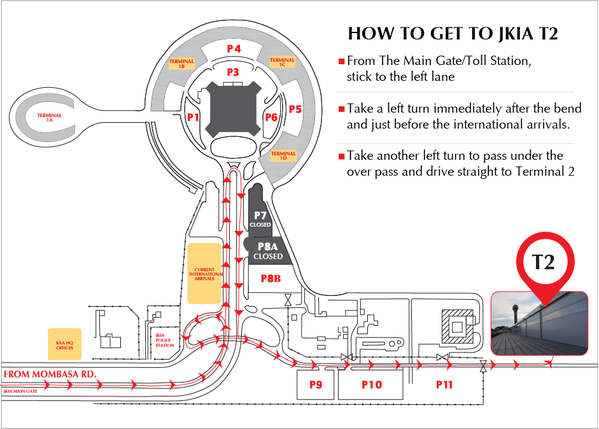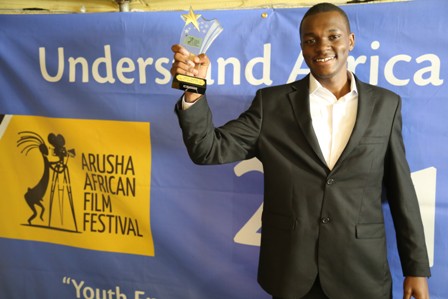By Ogova Ondego
Published October 7, 2011
A three-day international meeting for independent film and television producers opened in Igualada, Spain, on October 5, 2011.
Organised by the United Nations Educational, Scientific and Cultural Organisation (UNESCO) and the UNESCO Association of Igualada in the context of the UNESCO Audiovisual E-Platform and our related work in this area, the meeting brought together participants from 26 countries. Other partners involved in the training workshop included Lola Kenya Screen of Nairobi, the European Broadcasting Union, COPEAM (Permanent Conference of the Mediterranean Audiovisual Operators), Central Africa Bank of Images, Big Fish School of Digital Filmmaking, and INPUT (International Public Television Conference).
Below is the speech delivered by Alton Grizzle, Programme Specialist, Communication and Information Sector, UNESCO, on October 5, 2011 :
Distinguished Guests
Ladies and Gentlemen,
I am delighted to bring you brief remarks from UNESCO and to welcome you to participate in this International Training Workshop for Independent Producers jointly organised by UNESCO and the UNESCO Association of Igualada. The workshop is organised in the context of the UNESCO Audiovisual E-Platform and our related work in this area.
RELATED: New Book Looks into the Relationship between Folklore and Transmission of Wisdom in Uganda
Before proceeding, UNESCO would like say a special thank you to the Association of Igualada for their invaluable contribution from the very inception to implementation of this workshop. I am sure most of you are visiting Igualada for the first time, like me. Truly we are off the beaten track being privileged with the opportunity to be in this historic and beautiful city with heritage dating back to the 10th century. A workshop as this focusing on independent audiovisual content calls us to be inspired by this city, wanting to learn more about it and perhaps one of you will decide to do a documentary about Igualada and its surrounding communities.
It was Jim Rohn that observed that “everything you need for a better future and success has already been written”. All you have to do is to go to the library. While this observation holds much truth, independent producers should ask the question: Have all the stories that need to be told ? have been told? And if these stories have been told, from whose perspective were they captured and disseminated? Do they exist in forms that whoever wants to access them can do so?
We all know the old saying, “a picture is worth a thousand words”. Perhaps more important is the fact that pictures or images often times transcend and bridge cultures and languages. UNESCO hopes that over the next three days you will explore the power of the image – in its most comprehensive meaning.
Image, the moving image, whether it is captured on film or recreated in animation, is endowed with very strong evocative and emotional forces; forces that reach their audiences ‘ whether intentionally or unintentionally ” via a multitude of vectors; cinema, TV, Internet, mobile phones etc; forces that can effectively exert leverage on the perception of audiences and possibly on their behaviour.
RELATED: The World Votes on the New7Wonders of Nature
The entertainment potential of the moving image is a billion dollar industry. And nothing is wrong with that. However, there is also an undeniable potential underlying audiovisual production to favour understanding and awareness, to stir positive actions and to address social, political, cultural and economic issues.
Given their immediacy, audiovisual productions are particularly fit to convey development-related content to a large variety of audiences (including illiterate persons) and to catalyze, for instance, curiosity and openness towards “the Other,” – a prerequisite for intercultural and inter-religious dialogue. Similarly, audiovisual material, if properly packaged and circulated, can be a very useful support when addressing issues and policies related to good governance, empowerment of marginalized groups, and gender equality.
If mishandled or misinterpreted, images could trigger violence and conflict: rather than serving specific purposes, videos could end up playing a disruptive role in the society.
Mastering the vectors is therefore equally important as creating and expressing one’s message via images, especially in times when we see an overproduction of audiovisual material sprawling in and beyond the web. This workshop is intended not only to reaffirm the value of audiovisual production as a motor of social change, but also to sharpen all the relevant and interrelated skills with a wholistic approach.
RELATED: Spain Hosts International Training Workshop for Independent Audiovisual Media Producers
The production of audiovisual content has not escaped the inevitable need to use new information and communication technologies,: the shift towards the use of digital filming devices and other modern techniques mirrors the desire to gain access to new possibilities for self-expression and to rapidly circulate one’s production via a multitude of outlets.
The result is a proliferation of short videos on the Web, no doubt indicative of the positive trend towards greater access to citizens. This UNESCO encourages. Yet, it is of utmost importance that whoever wants to convey development-related content to a specific or generic audience should possess the right set of skills, tools, and know-how in order to ensure the quality of one’s creation and hence make one’s message stand out and distinct.
The Audiovisual E-Platform is conceived as a support dedicated to the collection, exchange and distribution of quality television content from South-North and from South- South. The E-Platform facilitates the collection, storage and showcasing of audio visual material created by independent filmmakers and producers, thus serving as an effective promotional and marketing tool. It also enables broadcasters, festival organizers and other interested institutions to access a rich basin of programmes in different high quality formats (short film, documentary, animation, TV magazines), selected based on criteria including orientation towards public service, creativity, innovation, and original representativeness of different cultures. With the newly developed functionalities of the E-Platform, members can now open and manage their own audiovisual catalogue through the Internet.
RELATED: Host for 6th World Summit on Arts and Culture Announced
UNESCO prides itself as being an organisation committed to promoting human development and peace. Indeed, in this age, there is no real development without the people, citizens, at its centre. The UNESCO Communication and Information Sector thus focuses on enhancing the impact of communication and information for development by supporting freedom of expression and broad-based participation in media operations on one hand, and developing free independent and pluralistic media on the other.
The CI sector’s commitment to spur a more equitable and inclusive use of mass media and development communication, can be perceived throughout the wide scope of actions and initiatives undertaken. Ensuring cultural diversity, intercultural dialogue and mutual understanding and promoting gender equality and women’s empowerment, are among the key interdisciplinary priorities of UNESCO.
We see this reflected even in this small workshop where over 26 countries are represented, covering all regions of the world and with a noticeable gender balance. In a sense a melting pot of the world has come to Igualada. UNESCO and our partner the Association of Igualada hope that you the participants will pour yourselves into, while at the same time, eat from this melting pot of knowledge and experience that has been afforded through this workshop.
RELATED: World Tourism Organisation Supports Tunisia
It leaves for me to thank all our other partners who are involved in this workshop. The European Broadcasting Union, COPEAM (Permanent Conference of the Mediterranean Audiovisual Operators), Central Africa Bank of Images, Big Fish , School of Digital Film Making, INPUT (International Public Television Conference) and Lola Kenya Screen.
I leave you with a quote from Winston Churchill, “true genius resides in the capacity for evaluation of uncertain, hazardous and conflicting information.” This truth should be an inspiration to all independent producers. I wish you a productive three days of learning and sharing.
I thank you and God bless you all.




